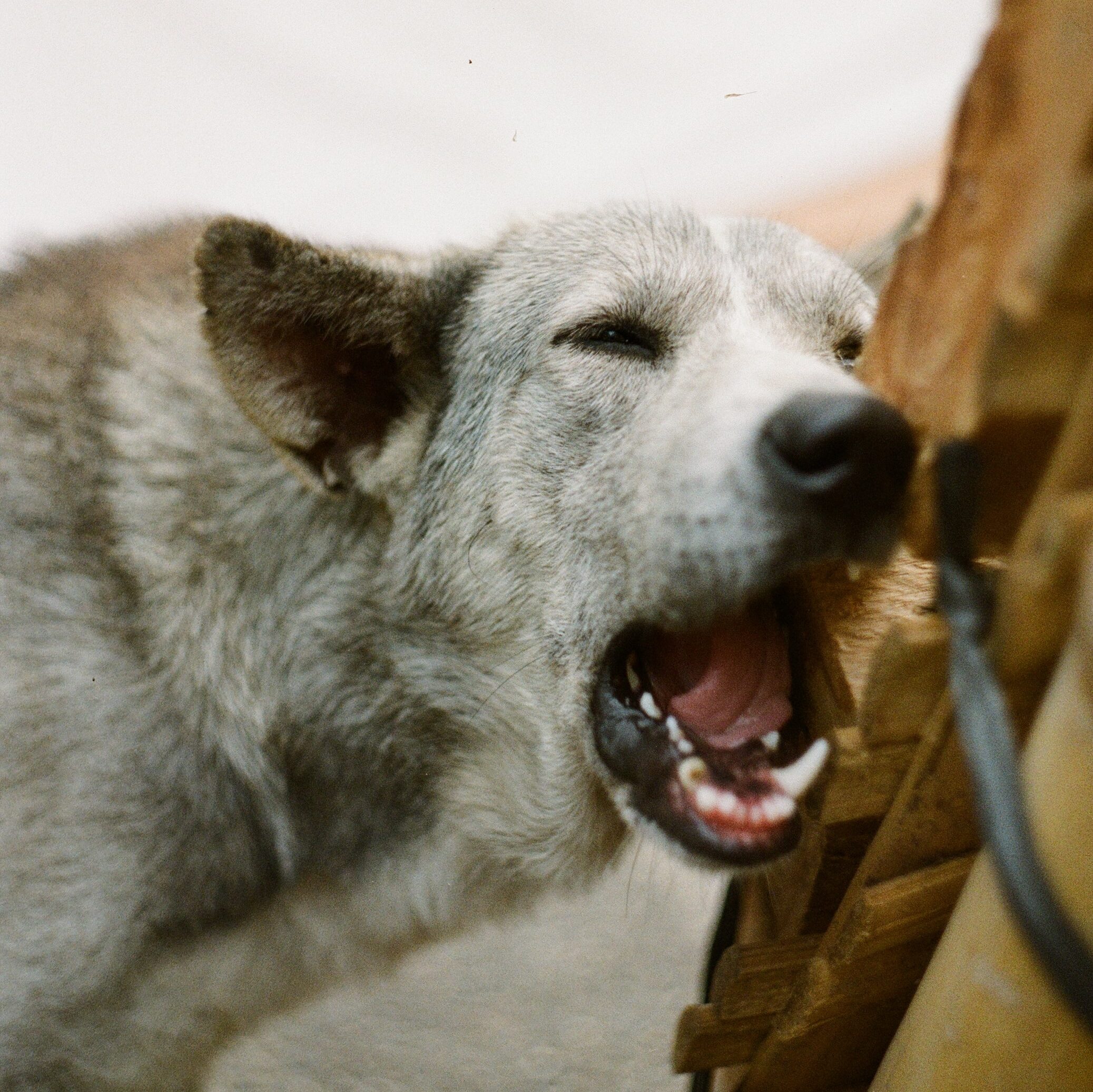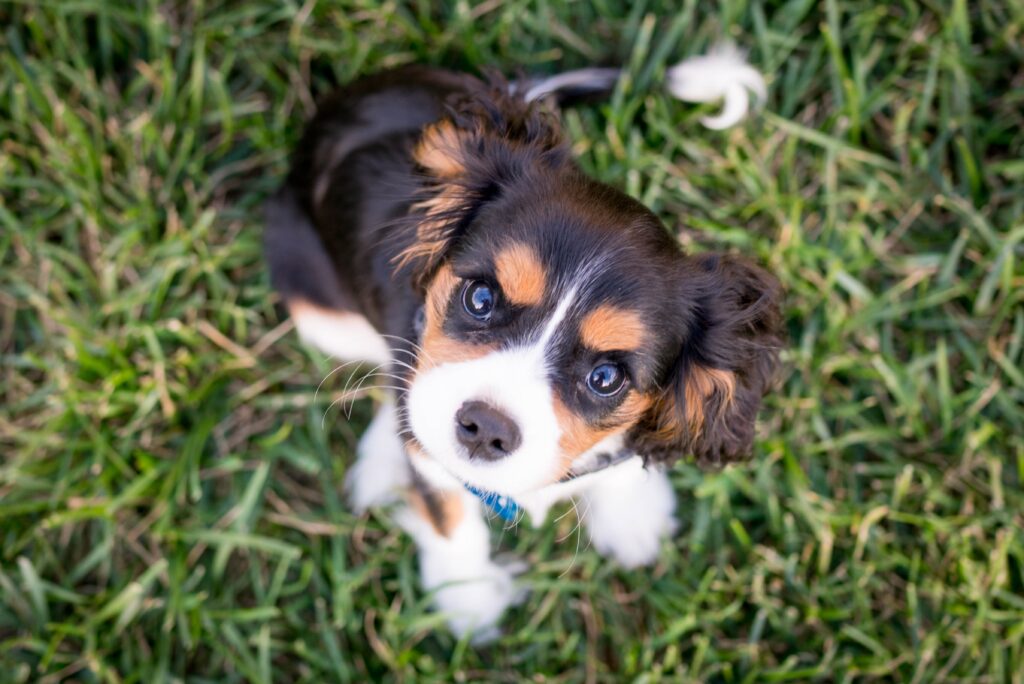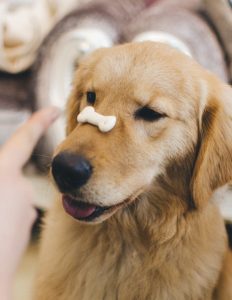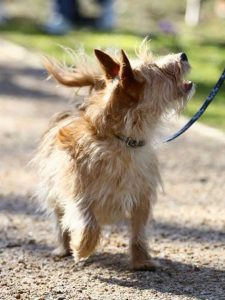Need help with Reactive Dog Behaviour? Join my FREE Facebook support group...
Things you wish they’d told you before getting a puppy!
Many owners tell me they were somewhat unprepared for the arrival of their new puppy, so here’s my list of things they wish they’d been told before bringing home puppy!
The Mouthing
For some puppies this can be pretty full on. To make matters worse there are many different reasons for it and each one has it’s own solution. I dedicated a blog to extreme mouthing it so if this is a problem for you, I definitely recommend having a read of that.
The chewing
As well as you, your pup might also start chewing your furniture, stones, sticks, your shoes, phones, remote controls, the curtains, toys, and everything else he can reach in your home! This is usually caused by teething pains which are perfectly normal. Chewing relieves the pain, so this phase will pass if you provide plenty of appropriate chew toys and keep redirecting your pup to those.

How much conflicting advice there is
Internet, books, Facebook, and the lady on the bus, all have an opinion on how best to bring up a pup. But every pup is so different and the advice you get just can’t account for that. So it feels like the world is full of conflicting advice. Most of it has worked for someone, but that doesn’t mean it will work for you. It’s a wonder anyone can figure out what’s the right approach these days when there is so much conflicting advice.
They eat their own poop!
Yes, it’s true. Disgusting as it sounds, many pups do like to snack on poop. Mostly they do this because they learned it from their mum, but it can become a bad habit. Discourage it by keeping your reaction to a minimum and teaching the leave command. Also, keep an eye on them and clean up straight away while they grow out of it. It can sometimes be related to digestion, so if you’re worried, speak to your vet about their diet.
How early you can start training
Pups are like sponges when they are little and they learn new things at an incredible rate. So don’t waste this golden opportunity to get their basic training and their socialisation started. There’s no need to wait for their vaccinations either, as long as they don’t go on the ground in public they’ll be safe. So either carry them, or get a puppy sling so you have your hands free, and get that socialisation started.
The recall is best started early too! The younger you can get your pup off the lead, the better. As he gets older, his confidence will grow and he’ll be much more inclined to wander off. Puppies that are let off their lead during their first few walks are much more likely to stay close later in life, even without being taught a formal recall.
If you are struggling with your recall, join my 30 Day Recall Challenge!
How much work it is
No-one can really prepare you for how much work it is or how long training will take. It takes many hours to fully train a pup. It’s not just a case of teaching them a trick in class, you have to practise the training in many different places and with all possible distractions for it to be properly learned.
How much repetition is required
As well as practising new tricks in different places, you’ll also need to repeat, repeat, repeat! This might mean going through a lot of treats, but if you stop too soon your pup will not have formed the habit and will lose interest.
How hard it is to be consistent
Unless you are the only one training your pup, and you’re particularly disciplined, being consistent can be a big problem. Add in kids, partners, and dog sitters, and suddenly getting everyone to do the same thing can feel almost impossible. If you can achieve it, getting everyone to work as a team will boost your pups confidence levels and help him learn faster.

The teenage months
Puppies are only puppies for a short time. Any time from around 6 months of age onwards they become teenagers, and that comes with it’s own set of challenges. Even if you did spend plenty of time on your basic training it might start to fail at this age. Your pup might also become frustrated, over sensitive, over tired, and have mood swings. This phase will pass if you remain consistent and keep at the training. If you don’t, new habits will form during this time which you will have to work on later.
How much guilt you would feel
From choosing the right food, picking out leads and harnesses, leaving them alone, going to work; in fact every choice you make – there’s always someone about to make you feel like you’re doing a terrible job! Do what you feel is right, or refer to experts such as vets and trainers for the best advice for you.
The cost
Between crates, routine health care, insurance, dog trainers, toys, food and treats, groomers, dog walkers, brushes, beds, leads, harnesses, coats and everything else you’ll need, the costs can quickly add up. In fact, it is estimated that it costs around £2000 a year to care for the average dog.
How much stuff you don’t need
There are plenty of companies trying to convince you that you need their latest gadget, food, or harness! You probably don’t need half the stuff you are “sold” – extendable leads are my biggest bug bear!
It also doesn’t need to be cute or expensive – that’s for you! Most of it will get chewed and dragged through the mud. In fact, your pups favourite toy will probably be a torn up rag that used to be a cute toy until it had its face chewed off! Or a toilet roll tube!
Save the nice stuff for when your pup is a settled and predictable adult!
The door bell!
If you do nothing else, please take time to desensitise your pup to the door bell sound! As soon as they associate it with visitors to your home it will become a trigger for all kinds of behaviour – much of which I am often called out to fix later in life!
It’s ok to go out!
Yep, believe it or not, it’s ok to leave your pup home alone. In fact, you should be encouraged to leave them for short periods, from day 3 onwards! They will be feeling safe in their new home at this stage and will be ready to be alone. The longer you leave it, the more likely your pup will develop a separation anxiety problem. However, if they are in danger of chewing something or getting into trouble while you are gone, then maybe consider using a crate to keep them safe while you are away.
What do you wish they’d told you before you got your puppy?
Leave a comment below, I would love to hear your thoughts…
How can I help you with your pups behaviour training?
Private Dog Behaviour Consultations are currently available in the Dundee area and beyond. If you are looking for help solving your dogs behaviour and training problems, then please get in touch!

